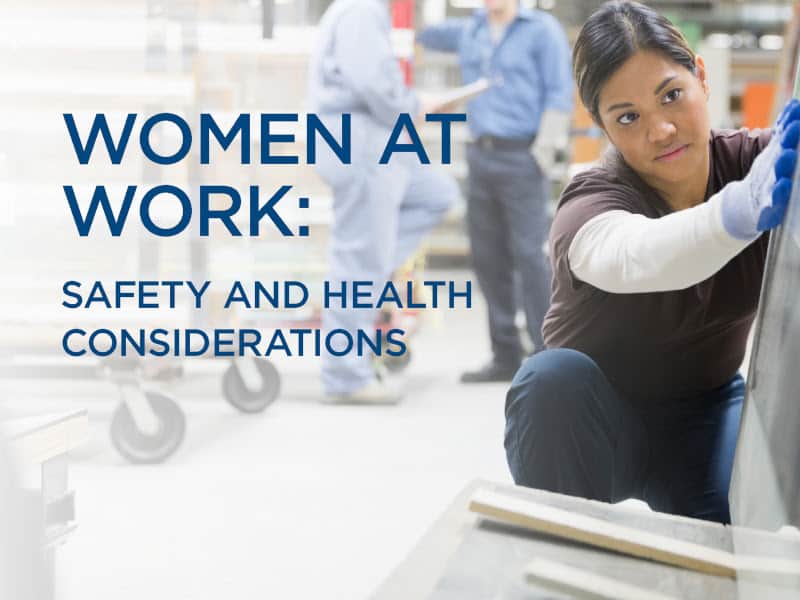In these times of #MeToo, employers are (or should be) very aware of the potential dangers of sexual harassment of women on the job, whether from misconduct directed at a particular woman or general “guys will be guys” comments. This type of behavior can make women feel vulnerable and unsafe in the workplace.
But according to EMC Senior Industrial Hygienist Kelsie Boorn, the dangers and problems women face in the workplace—particularly in male-dominated fields such as manufacturing and construction—cover much more ground. And some of these are physical dangers that should also be taken very seriously. Personal Protective Equipment. As Kelsie visits EMC-insured companies and works with workplace ergonomics, she notices that many workplaces are not designed and set up for a woman’s stature. “To make it personal, I’ve been in situations where putting on a reflective vest is a necessity.
A supervisor on the site will hand me one, and inevitably, it hangs down to my knees,” she says. And while an overly large vest is manageable for her while walking in the building, other PPE sizing issues are much more hazardous. Ill-fitting hearing protection, respiratory masks or hard hats can cause serious, even life-threatening injury. And while it’s possible to purchase woman-sized apparel, some companies don’t take the initiative to do so, assuming a man’s size small is close enough. In fact, a 2017 study found that only three in 10 women are given PPE designed for women.
Women’s Health. As Kelsie visits companies, the questions most often asked by women are about pregnancy. “They are concerned about the effect of chemicals on reproductive health and pregnancy, or how equipment designed for men might damage a fetus or reproductive organs,” she says. In addition, sanitary restroom facilities, especially on construction sites, can be a problem. She notes that there are job sites where women must leave the site to find a public restroom. Another issue raised by women is pumping breastmilk in a sanitary facility. She says many companies do provide space for this vital function but others don’t, so women may have no option but to use a restroom or go to their car.

What Can You Do?
- Examine your tools, PPE, machinery, workstations and other workplace items women use to see where potential problems may be.
- Look back at workplace injuries and claims. Are there specific areas or machines that appear to be dangerous for women? Take corrective action to avoid future claims.
- Involve women in making decisions that affect them. If you are buying new PPE, purchase women-specific items that fit your female employees and let them try on options to be sure they fit correctly.
- Review this Gender Checklist on Occupational Safety and Health for suggestions you can implement.
Ask questions and listen carefully to the responses. Kelsie believes this point is key to employee job satisfaction, regardless of gender. Simply asking, ‘Is there anything you would change about your job?’ or ‘What can we (the company) do to help you be the most productive?’ goes a long way. “I frequently ask this question of both female and male employees when visiting companies, and I’m both shocked and saddened that a frequent response is, ‘You are the first person to ever ask,” Kelsie says. Women (and men, too) may be afraid to bring up problems, thinking they might experience retribution or ridicule from other workers or management.

Kelsie explains that asking for employee input makes them feel as if they have some control over their job, making them more invested and productive. “Usually when asked about what changes he or she would make, the initial reaction is ‘everything is fine,’ but often they’ll pull me aside later and bring up a few small issues,” she says. Targeting these problems is a great way to start making the workplace better for everyone.
This content has been provided by one of our Insurance Carriers, EMC Insurance.
If you would like a review of your current coverage, give Bill a call at (720) 457-9457.

